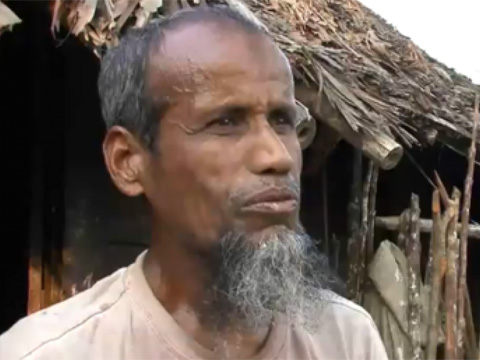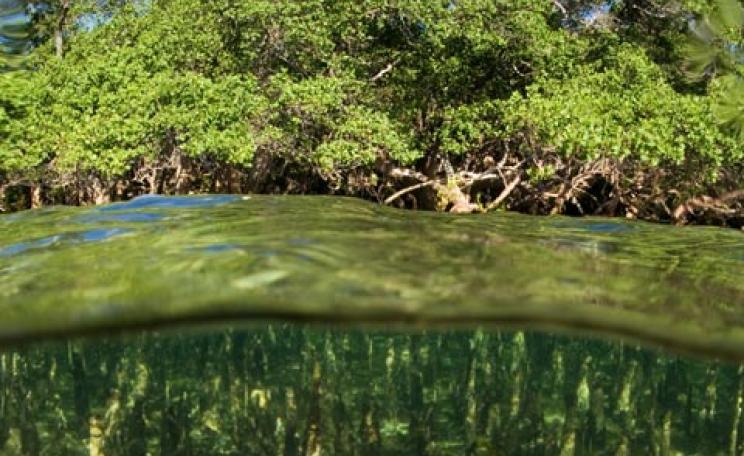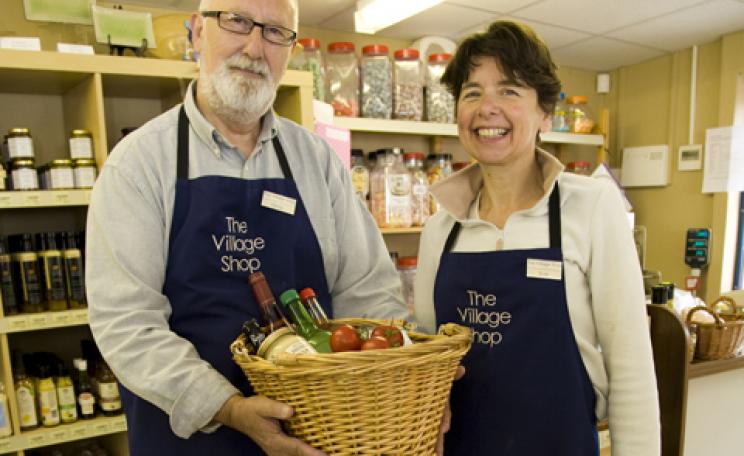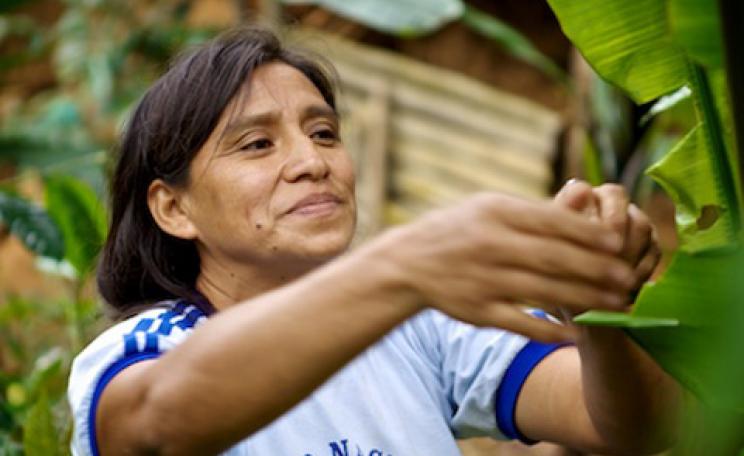What has been your most successful campaign to date?
I do not feel that I can honestly say that I have been part of a truly successful campaign. The reason I say this is because as long as injustice and exploitation of both people and resources continue to be looked upon with impunity, ‘in the interests of the greater good', which in other words mean looking after the interests of those whose lives and lifestyles depend on profit and exploitation, every little gain that we see is compounded by newer forms of extraction, which means our struggles, our campaigns are always continuous.
Having said this, there have been certain gains made which makes it seem worth our while to continue. One of which is our campaign against industrial shrimp aquaculture. By this we mean that form of shrimp production that is unsustainable, ecologically damaging, a monoculture, based on large scale production, led primarily by an export market and out of the control or hands of local communities. At the beginning in 1990, when one of our landless women community members was brutally killed and around fifty others injured by an extremely powerful shrimp farmer from the nearby city in an attempt to take over rich agriculture lands for shrimp, which was met by strong resistance, I have seen the change in attitude from national level government representatives to international actors at least willing to talk, to accept, acknowledge that something may be wrong with the industry. This for us is a step forward where attempts to stifle our voices have not been successful.
The other campaign that was jointly taken by us locally, nationally and globally and which met with some success was stopping the financing of a 10 billion dollar World Bank coordinated fiasco/project called the Flood Action Plan in the mid nineties.
What has been your least successful campaign to date?
Since the main thrust of the work I do is with rural communities, particularly the landless peasants, indigenous peoples, women from these groups and other marginalized sections, I could make a really long list of campaigns where I have as yet been unable to make a dent, starting with ensuring people's basic human rights and against state sponsored terrorisms.
In this interview I will possibly state that not being able to get our policy makers, whether politicians or bureaucrats, nationally or internationally, understand the importance or even the concept of food sovereignty as against food security as being the major focus for ensuring people's access to food as a basic right. Thus, not being able to get Governments to comprehend the need for a pro poor natural resource protection policy, keeping in mind traditional knowledge and practices leading to a people and ecologically sensitive land use policy ensuring the rights of the marginalised local communities.
What gets you out of bed when you're at your lowest?
This is a luxury I cannot have. When every morning you are waking up to people wanting to talk to you, intervene with them on their behalf, you cannot afford to choose to indulge yourself. There is always something that needs immediate attention. There are also so many unattended matters that should have been done the day before. No chance of even thinking of when I am at my lowest.
Corporations: work with them or against them?
The main rationale and objective of Corporations is Profit, with a Capital P. Our main role is working alongside people. When the people we work with have their survival at risk, when their needs which are at such a low level are threatened constantly by these Corporations, whose profits often depend on extraction and exploitation of the very natural resources and the labour or inputs that the majority of the people are dependant upon, the interests of these two groups are diametrically opposite each other. Only When and If corporations decide that Profit, Markets with the component of created consumer needs to meet these are no longer their raison d'etre, can one even begin to think of working with them.
What is the best way to motivate people?
The best way to motivate people is to be with them. Give full information about what is happening, how it is affecting people's lives, stand beside them when actions are taken, when they face enormous threats and violence in just trying to establish their constitutionally guaranteed rights as equal citizens, learn from them. Over here I must clarify that I am talking of citizens from nations such as Bangladesh. On the other hand, in a global world controlled by global interests, international solidarity is important. Here we need to motivate people about the inter linkages that exist both environmentally and economically in this new world order and the need for every single person to act.
What is the best way of reaching politicians?
We have tried to get politicians to attend rallies and large meetings organized by local people themselves. As a vote bank, force them to listen to their constituents. It is not an easy task. Sometimes, identifying the more sympathetic ones, sharing information and exposing them to the other side, has been a successful way to get politicians to listen. Unfortunately in many countries such as ours, business people turn into overnight politicians through use of money and edge rooted politicians out of parliament.
What is the most important thing to avoid when campaigning?
Distancing oneself from local communities and their concerns. Governments, donors and other interest groups often try to co-opt organizations such as ours. Their agenda is already set, they use this as a ploy to ensure that we get engaged otherwise, take our presence as a rationale to prove they have had consultations and then proceed as they had originally intended to. One has to be very careful not to fall into this situation.
Most important thing Bangladeshi government could do this year?
Hold true and open consultations with all concerned. Make sure that the people usually and traditionally excluded are brought in, listened to with respect and their views and alternatives given space and taken as policy. Ensure a truly transparent system of operation that makes a nation democratic.
Most important thing individuals could do this year?
Become more aware of what is happening around them. Assess the impacts of every action or purchases they make on people they are not in touch with or cannot see. The age old slogans of ‘Act locally, think globally', ‘Personal is political' are not hackneyed at all. They still hold true today.
What makes a good campaigner?
PASSION. Being passionate about what you believe in and acting accordingly. This is not a career path to get you somewhere. It is a lifetime belief and lifetime activity.
What (other) campaign has caught your attention recently?
Within Bangladesh and the region there are many. To mention two: campaigns to reform the ship breaking industry and bring land reforms back into the agenda. At a larger level, the fights against Patriarchy in all its forms; Fundamentalisms (the plural here is deliberate and very very important) economic as well as ideological; Privatisation of one's basic requirements, for instance the movement against privatization of water.
Who is your campaign hero (past or present)?
Irene Fernandes from Malaysia, Hina Gilani from Pakistan, Aruna Roy and Irom Sharmila from India, the late Yayori Matsui from Japan, and ofcourse the late Karunamoyee Sardar who in her death was responsible for my being in this interview today....the list is endless.
Further information:
| READ MORE... | |
 |
INVESTIGATION The world's first environmental refugees The disappearance of Lohachara beneath the waters of the Bay of Bengal created the world’s first environmental refugees. Dan McDougall reports on other islanders in the Sundarbans delta who have no escape from the rising ocean. Photography by Robin Hammond |
 |
SPECIAL CONTENT EFU Film: Dwindling forests, dwindling futures – how forest dwellers being ignored by the Bangladeshi Government A new Ecologist-produced film - to be screened by campaigners from the Forest People's Programme at the forthcoming Convention on Biological Diversity meeting in Japan - highlights how the rights of indigenous peoples and their sustainable use of natural resources are being ignored by the Bangladesh Government |
 |
SPECIAL CONTENT EFU Film: Selling The Sea – revealing Indonesia’s little-known plans to privatise huge swathes of coastline for aquaculture In an exclusive investigation, the Ecologist Film Unit reveals the impact of Indonesia's plans to privatise its entire 90,000 km coastline |
 |
GREEN LIVING To farm or to fish - does aquaculture have the answer? Our oceans are suffering from chronic overfishing - but are fish farms any better for the environment? Matilda Lee weighs up the piscine pros and cons in the battle to save world stocks from collapse. |
 |
NEWS ANALYSIS Shipbreaking: clampdown in Asia will send it to Africa Following our exclusive investigation, Ingvild Jenssen from the NGO Platform on Shipbreaking explains how tougher regulations simply relocated the shipbreaking industry, and how the public can help stop the trade |








